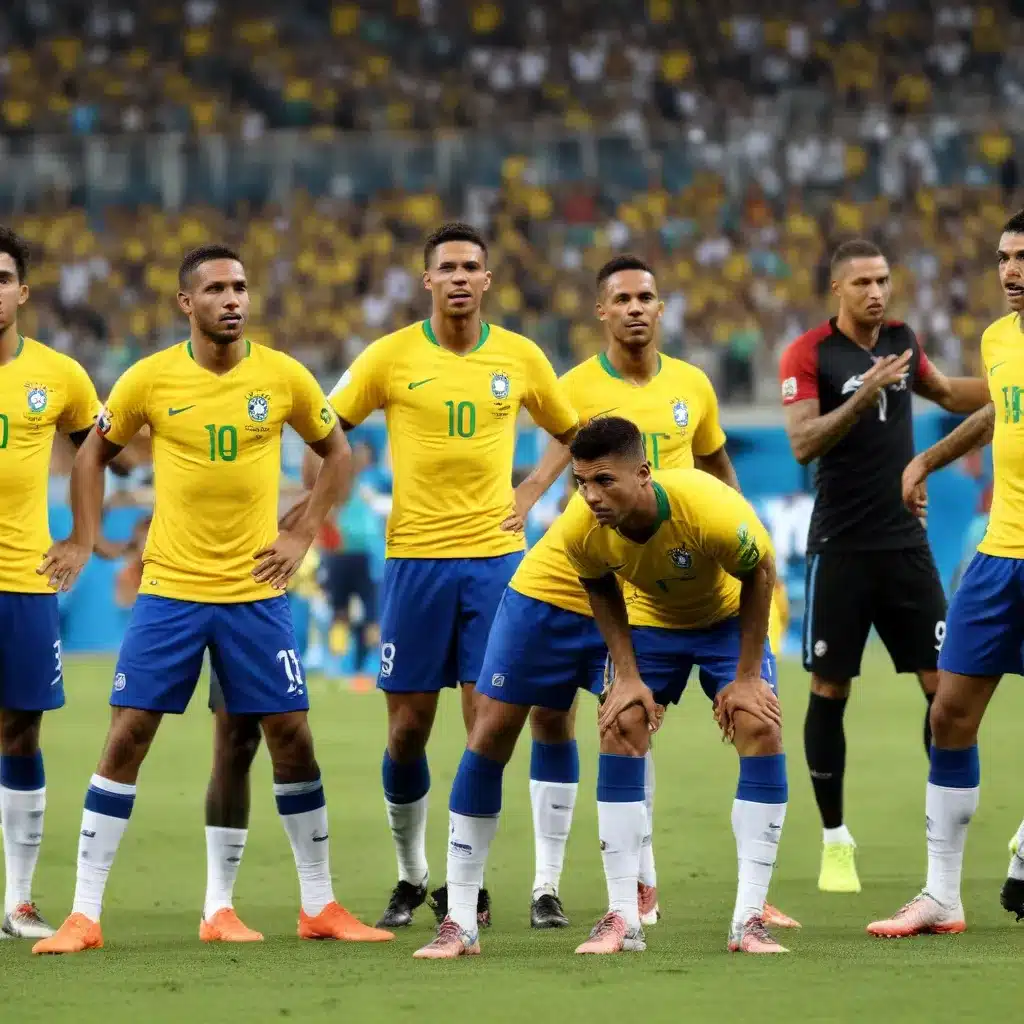
The Evolution of the Full-Back Role
The full-back position in Brazilian football has undergone a remarkable transformation over the decades. Once primarily focused on defensive duties, the role of the full-back has evolved to encompass a more dynamic and multifaceted approach to the game.
Changing Tactical Demands
Traditionally, full-backs in Brazil were tasked with the primary responsibility of shielding their respective flanks, tracking opposing wingers, and providing a solid defensive foundation. However, as the game has progressed, the tactical demands placed on full-backs have shifted dramatically. Modern football requires full-backs to be not only adept defensively, but also capable of contributing to the team’s attacking play.
Increased Attacking Involvement
Brazilian full-backs have embraced this evolution, developing a remarkable blend of defensive solidity and offensive prowess. They are now expected to make overlapping runs, provide width, and deliver accurate crosses into the box – all while maintaining their defensive responsibilities. This versatility has become a hallmark of the modern Brazilian full-back, with players like Cafu, Roberto Carlos, and Dani Alves setting new standards for the position.
Tactical Versatility in Brazilian Football
Brazilian teams have long been renowned for their tactical adaptability, and this ethos is particularly evident in the way they utilize their full-backs.
Defensive Positioning and Coverage
Full-backs in Brazil are trained to maintain a solid defensive shape, positioning themselves strategically to provide coverage and support to their central defenders. They are adept at reading the game, anticipating opposition movements, and making timely interventions to thwart attacks. This defensive awareness is a crucial component of the Brazilian full-back’s skill set.
Overlapping Runs and Crossing Ability
However, the Brazilian full-back’s role extends far beyond pure defensive duties. They are expected to contribute to the team’s attacking play, often making overlapping runs to stretch the opposition’s defense and create space for their teammates. Their crossing ability is also highly valued, as they look to deliver dangerous balls into the box, creating goal-scoring opportunities for their forwards.
Transition from Defense to Attack
The ability to seamlessly transition from defense to attack is a hallmark of the Brazilian full-back. They are trained to read the game and identify moments when they can surge forward, either by making a forward run or by quickly switching the point of attack. This tactical flexibility allows Brazilian teams to maintain a fluid and dynamic style of play, keeping opponents on their toes.
Defensive Strategies in Brazilian Football
Brazilian football is renowned for its diverse and adaptable defensive strategies, with full-backs playing a pivotal role in the team’s overall defensive organization.
Defensive Organization
Brazilian teams often employ a zonal marking system, with full-backs responsible for controlling their respective flanks. This approach emphasizes positional discipline and collective defensive cohesion, as players work together to deny the opposition space and scoring opportunities.
Pressing and Counterattacking
Alongside their zonal defensive responsibilities, Brazilian full-backs are also integral to the team’s pressing and counterattacking strategies. They are tasked with initiating the press, closing down opposition players, and quickly transitioning the team into a counterattacking mode when possession is regained.
Adaptability and Flexibility
The versatility of Brazilian full-backs is further demonstrated in their ability to adapt to various defensive structures. Whether playing in a traditional back four, a three-man backline, or a more fluid system, Brazilian full-backs are adept at adjusting their positioning and responsibilities to suit the team’s tactical needs.
Influence of Brazilian Full-Backs on the Game
The impact of Brazilian full-backs on the evolution of the game cannot be overstated. Iconic players like Roberto Carlos, Cafu, and Dani Alves have left an indelible mark on the position, shaping the way it is perceived and executed globally.
Iconic Brazilian Full-Backs
Roberto Carlos, with his thunderous left-footed shots and marauding runs down the flank, revolutionized the way full-backs were perceived. Cafu’s tireless work rate, tactical awareness, and ability to contribute at both ends of the pitch set new standards for the position. More recently, Dani Alves has continued this tradition, showcasing a remarkable blend of defensive solidity and offensive creativity.
Impact on Modern Football Tactics
These legendary Brazilian full-backs have had a profound influence on the way the position is approached in modern football. Their ability to seamlessly transition between defensive and attacking roles has inspired coaches and players around the world to re-evaluate the tactical demands placed on full-backs. The blending of defensive and attacking responsibilities has become a hallmark of the modern full-back, with Brazilian players leading the charge in this evolution.
The Future of the Full-Back Position in Brazil
As the game continues to evolve, the role of the full-back in Brazilian football is poised to undergo further transformation, with emerging trends and innovations shaping the position’s future.
Increased Tactical Awareness
The next generation of Brazilian full-backs is expected to display an even greater level of tactical awareness and decision-making. They will be required to read the game with exceptional precision, making split-second choices to support the team’s defensive and offensive objectives.
Emphasis on Technicality and Decision-Making
In addition to their physical attributes, the future Brazilian full-backs will need to possess outstanding technical skills and the ability to make intelligent, game-changing decisions. The emphasis on technicality and decision-making will be paramount, as full-backs are called upon to contribute to the team’s build-up play and create goal-scoring opportunities.
Player Development and Scouting
The development of versatile, tactically-astute full-backs will be a key priority for Brazilian football clubs and national team coaches. Scouting and nurturing these multifaceted defensive talents will be crucial, as teams seek to maintain the country’s legacy of producing world-class full-backs who can adapt to the ever-evolving demands of the game.
As the full-back position continues to evolve in Brazilian football, the country’s rich history of producing iconic players and pioneering tactical approaches will undoubtedly shape the future of the position. With a focus on adaptability, technicality, and decision-making, the next generation of Brazilian full-backs is poised to redefine the boundaries of the role, cementing the nation’s status as a true powerhouse in the beautiful game.

